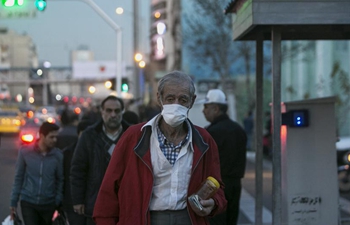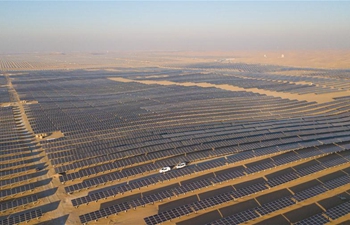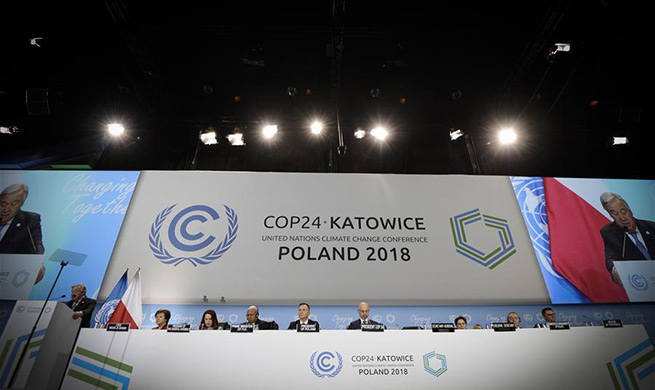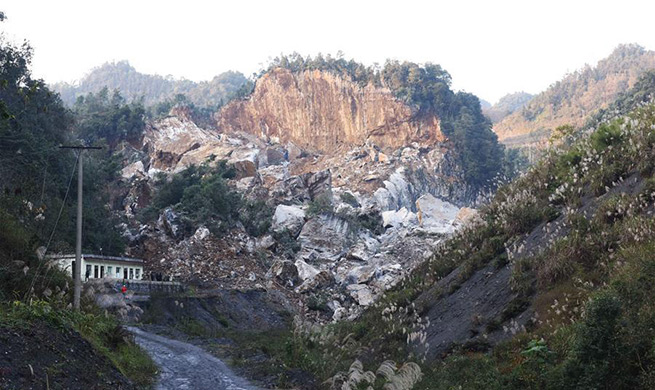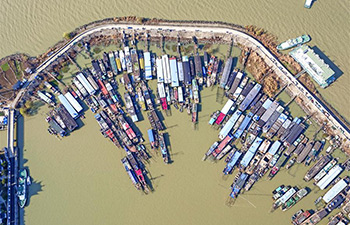PYONGYANG, Dec. 16 (Xinhua) -- A research institute under the Ministry of Foreign Affairs of the Democratic People's Republic of Korea (DPRK) issued a statement Sunday night criticizing the United States for imposing sanctions against DPRK officials.
The statement was issued by the policy research director of the Institute for American Studies of the Foreign Ministry, and released by DPKR's official Korean Central News Agency (KCNA) without giving the name of the director.
The statement said the top leaders of the DPRK and the United States committed themselves to improving the DPRK-U.S. relations at the historic DPRK-U.S. summit held in Singapore in June, and currently the bilateral relations are advancing along the firm will of the two leaders to follow through their joint statement issued then.
However, it added, over the past six months, the U.S. State Department and the Treasury Department have carried out eight rounds of sanctions against DPRK companies, individuals and ships as well as other third countries through false pretexts.
"Recently, the U.S. is resorting to an anti-DPRK human rights plot in such a way that it carries a deliberate provocation by adding high-ranking government officials of the DPRK" to its unilateral sanctions list, while taking issue with a non-existent "human rights issue," the statement pointed out.
Washington announced on Dec. 10 that it would impose sanctions against three DPRK officials for serious human rights abuses and censorship, and DPRK's statement on Sunday seems to be a semi-official response to the U.S. decision.
"Far from the statements of the (U.S.) president, the State Department is instead bent on bringing DPRK-U.S. relations back to the status of last year which was marked by exchanges of fire. I cannot help but throw doubt on the ulterior motive of the State Department," KCNA quoted the director as saying, adding that the sanctions against the DPRK "would not work."
The director also stressed that if the high-ranking politicians within the U.S. administration wished to "drive us into giving up nuclear weapons by way of increasing anti-DPRK sanctions and pressure," it would be a miscalculation, and "will block the path to denuclearization on the Korean peninsula forever."

